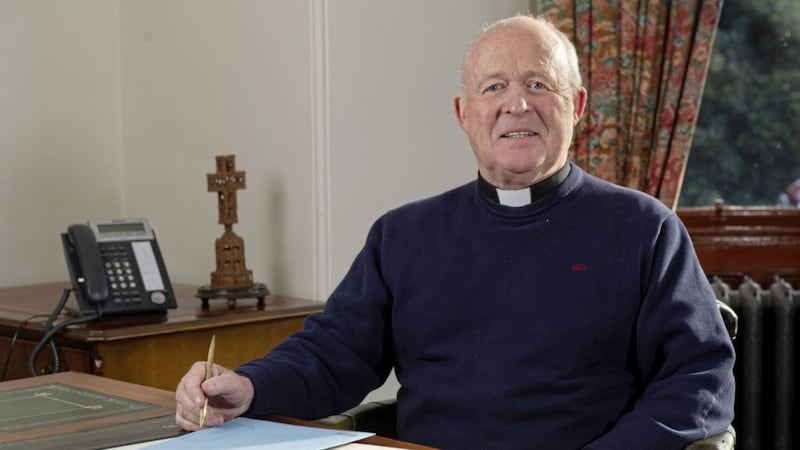A senior Bishop has added to calls for Catholics to become more involved in church life as fewer people join the priesthood.
Larry Duffy, the Bishop of Clogher, issued a pastoral letter on Sunday stating that within 20 years there will be fewer than 10 priests covering 85 churches in the whole diocese.
It follows a similar call in May by his counterpart in Down and Connor, Bishop Donal McKeown, who said that lay-people would need to ease the burden for services such as weddings and funerals.
"The truth is that we cannot continue to operate and provide pastoral ministry across our diocese in the same way as we do now or as we did in the past," he wrote.
"We have to look at a whole new model. The figures given to us indicate that if we continue as we are, in less than 20 years there will be fewer than 10 priests covering the 85 churches across the whole diocese – from Bundoran on the Atlantic to Inniskeen and Killanny near Dundalk.
"At most, there will be just one priest ordained in the next seven years. These facts alone will mean less Masses."
He added that priests were also being too heavily depended upon for not just pastoral care, but also for administration, property maintenance, planning and governance of parishes.
Read more
- Priest shortage will mean not every family can have Requiem Mass, bishop warns
- Clonard Novena returns with focus on the future of the Catholic Church
A diocesan group, consisting mainly of lay people, is now being established to help plan for the future.
"These challenges will involve letting go of some things that are familiar to us," he said.
"We will be challenged to develop new ways of learning and celebrating our faith; new ways of gathering in our parishes for prayer in the absence of a priest, new ways of preparing for and celebrating funerals, new ways of assisting in parish administration and so on."
He spoke of some parishes already achieving this "with great vitality," including some parishioners taking on roles in conducting funerals.
"Let us discern, therefore, on how best we can all promote a different way of doing things; how we can better appreciate and value the specific gifts of all the baptised and the ordained within the one People of God – the Pobal Dé. We cannot afford to wait any longer."








